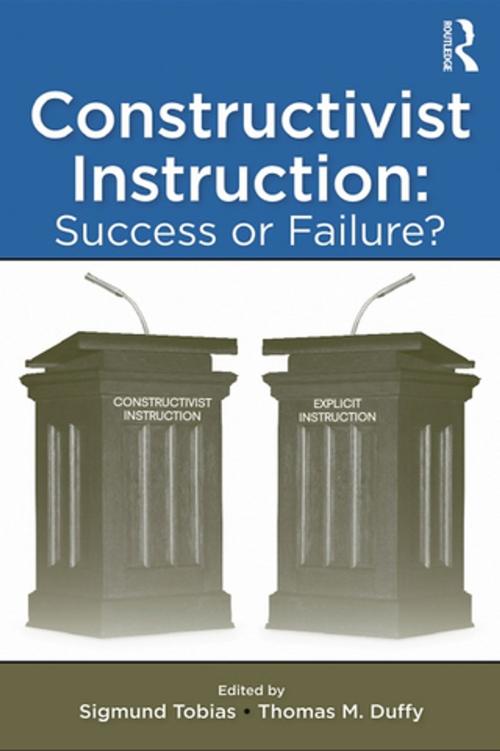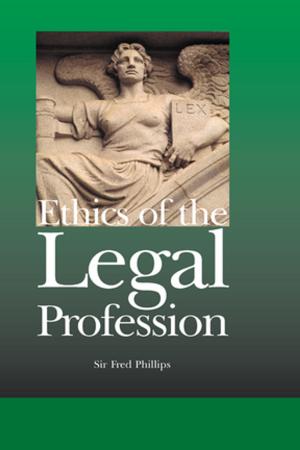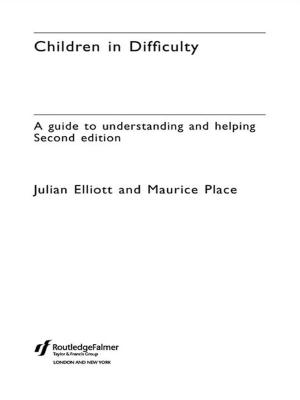Constructivist Instruction
Success or Failure?
Nonfiction, Reference & Language, Education & Teaching, Educational Theory, Curricula, Educational Psychology| Author: | ISBN: | 9781135847920 | |
| Publisher: | Taylor and Francis | Publication: | May 28, 2009 |
| Imprint: | Routledge | Language: | English |
| Author: | |
| ISBN: | 9781135847920 |
| Publisher: | Taylor and Francis |
| Publication: | May 28, 2009 |
| Imprint: | Routledge |
| Language: | English |
Constructivist Instruction: Success or Failure? brings together leading thinkers from both sides of the hotly debated controversy about constructivist approaches to instruction. Although constructivist theories and practice now dominate the fields of the learning sciences, instructional technology, curriculum and teaching, and educational psychology, they have also been the subject of sharp criticism regarding sparse research support and adverse research findings. This volume presents:
- the evidence for and against constructivism;
- the challenges from information-processing theorists; and
- commentaries from leading researchers in areas such as text comprehension, technology, as well as math and science education, who discuss the constructivist framework from their perspectives.
Chapters present detailed views from both sides of the controversy. A distinctive feature of the book is the dialogue built into it between the different positions. Each chapter concludes with discussions in which two authors with opposing views raise questions about the chapter, followed by the author(s)’ responses to those questions; for some chapters there are several cycles of questions and answers. These discussions, and concluding chapters by the editors, clarify, and occasionally narrow the differences between positions and identify needed research.
Constructivist Instruction: Success or Failure? brings together leading thinkers from both sides of the hotly debated controversy about constructivist approaches to instruction. Although constructivist theories and practice now dominate the fields of the learning sciences, instructional technology, curriculum and teaching, and educational psychology, they have also been the subject of sharp criticism regarding sparse research support and adverse research findings. This volume presents:
- the evidence for and against constructivism;
- the challenges from information-processing theorists; and
- commentaries from leading researchers in areas such as text comprehension, technology, as well as math and science education, who discuss the constructivist framework from their perspectives.
Chapters present detailed views from both sides of the controversy. A distinctive feature of the book is the dialogue built into it between the different positions. Each chapter concludes with discussions in which two authors with opposing views raise questions about the chapter, followed by the author(s)’ responses to those questions; for some chapters there are several cycles of questions and answers. These discussions, and concluding chapters by the editors, clarify, and occasionally narrow the differences between positions and identify needed research.















